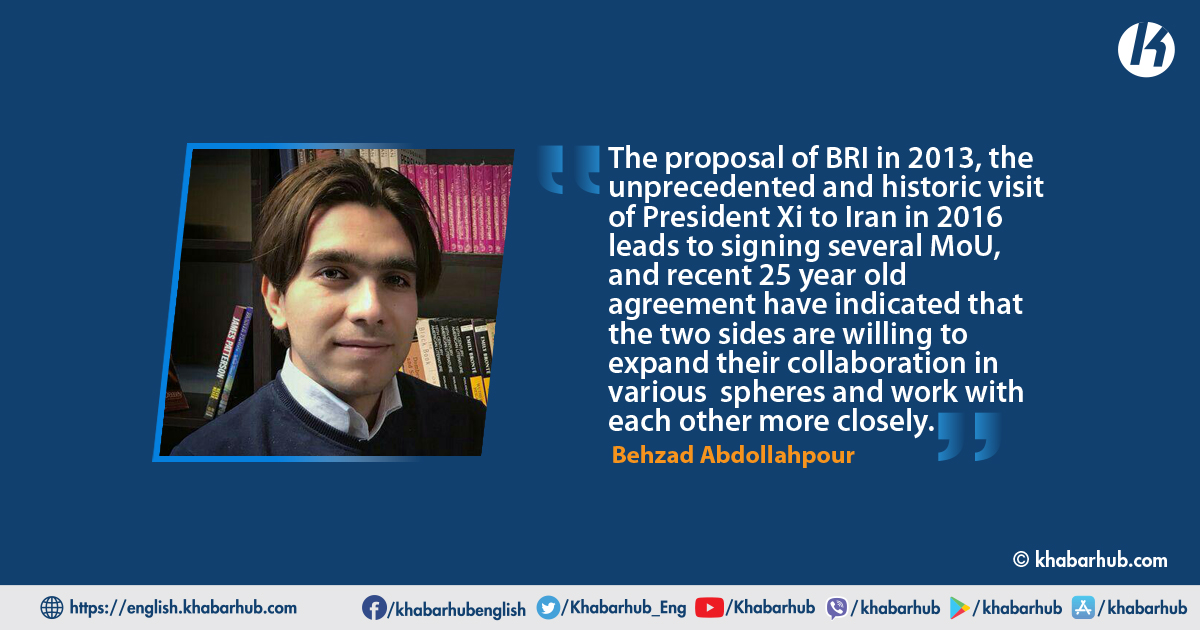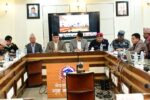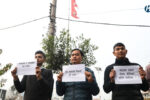Recently Ebrahim Raisi sworn in as Iran’s eighth president and took the office against the backdrop of internal economic crisis, ongoing negotiations on the restoration of Iran’s nuclear deal, the COVID-19 outbreak, and heightening regional tensions in the Middle East.
Therefore, all the eyes are on his administration about how it will address these issues which constitute both its domestic and international agendas.
Regarding his foreign policies agenda, the general consensus of opinion is that he is likely to take “Look East” strategy which means closer collaboration with China and Russia.
Chinese and Russian leaders were also among the first leaders who sent regards to president Raisi. These messages are the reminiscent of the closeness of Iran’s relations with China and Russia.
Furthermore, up until now, Beijing and Moscow continue to occupy prominent roles in Tehran’s global foreign policies whether at international communities or supporting Iran’s position regarding removal of US sanctions.
President Raisi’s Prospective Foreign Policies Agendas
In order to understand president Raisi’s foreign policies specifically towards China, we should have a look on the pillars of his foreign policies agendas which will definitely shape Iran’s global affairs in international system.
According to his recent speeches before and after presidential election, the cores of his foreign policies would be very likely to revolve around establishing peace, and security from a position of authority, and diplomacy and negotiation from a position of dignity and national interest.
In fact, after US withdrawal of Joint Comprehensive Plan of Action (JCPOA), and imposing further sanctions on Iran while its Western allies were silent and reacted cautiously to the US violation of agreement, Iranian authorities lost their confidence of negotiating with the West in general and US in particular.
Furthermore, he reiterates that his administration will pursue four economic priorities which address the issue of budget deficit, stability in Tehran Stock Exchange (Burs-e Avraq-e Bhadar-e Tehran), controlling inflation, and fighting with COVID-19.
Although the majority of scholars believe that President Raisi will increase his engagement with Iran’s Eastern partners (China-Russia), that doesn’t mean he will fall out with the West.
In order to have safe and deep relations with the East, Iran has to maintain its ties with the West, even at a lower level. His administration is cognizant of the importance of Iran’s nuclear issue which would affect both Tehran’s domestic and foreign policies.
Therefore, as he repeatedly mentioned in his press conference, he will try to strike a balance between East and West. But unlike the previous pragmatic administration, he won’t rely completely on the West in order to solve economic problems.
In fact, after US withdrawal of Joint Comprehensive Plan of Action (JCPOA), and imposing further sanctions on Iran while its Western allies were silent and reacted cautiously to the US violation of agreement, Iranian authorities lost their confidence of negotiating with the West in general and US in particular.
Furthermore, focusing on Islamic convergence and cultural variables that Iran shares with many of its neighbor countries would establish long-lasting stability in the Middle East and help Iran and China to elevate their partnership to a higher level.
Hence, it is expected that his administration will approach the West more cautiously than before. During his half-hour inauguration speech, Raisi maintained that “the sanctions must be lifted”, and “we will support any diplomatic plan that supports this goal.”
Therefore, it seems that he contemplates of creating a balance between East and West while securing national, regional and international interests.
How will President Raisi Shape Iran and China’s Future Ties?
Since the 1979 Iranian Revolution, pivot to the East has been existed in the strategies of Iran’s foreign policy in which China has a special place.
Approximate coincidence of China’s “Open Door Policy” with Iran’s revolution, brings the two states closer to each other.
From that time onwards, China and Iran have established deep relations specifically in economic sphere. The proposal of BRI in 2013, the unprecedented and historic visit of President Xi to Iran in 2016 leads to signing several Memorandum of Understanding (MOU), and recent 25 year old agreement have indicated that the two sides are willing to expand their collaboration in various spheres and work with each other more closely.
This pendulum would be continued in the future, as China’s Foreign Ministry Spokesperson Hua Chunying recently mentioned “We believe that under the leadership of President Ebrahim Raisi, Iran will achieve greater progress in national and socioeconomic development.”
However, there are some challenges that would hold many pitfalls for Iran and China’s future partnership.
US unilateral sanctions and keeping Iran on the black list of Financial Action Task Force (FATF) are two serious challenges.
Another important challenge is the existence of tensions between Iran and its regional adversaries including Saudi Arabia and United Emirates (UAE) with whom China has deep economic relations which makes Beijing to strike a balance with Iran and those countries.
Restoring JCPOA, diffusing the tensions between the neighbor countries would pave the way for Iran and China’s further cooperation in economic and energy sectors which is vital for Tehran, since after US unilateral withdrawal of JCPOA and the subsequent sanctions, inflict heavy damage on Iran’s economy specifically its energy infrastructure.
However, it seems that the hope of reviving JCPOA has slowly been fading. On the one hand, Biden administration seems to pursue Donald Trump’s maximum pressure strategy and Obama’s Western alliance system as two leverage to bring Iran back to the negotiation table.
Furthermore, Washington avoid providing any guarantee that it would not withdraw from the deal again. Iran on the other hand persists on US return to the previous JCPOA and abundantly makes it clear that it will not negotiate over its missile program and regional strategies- which are considered Iran’s deterrent power.
Following recent Tehran-Riyadh talks in Iraq, and President Raisi’s eagerness to expand Iran’s relations with neighbor countries will promise that Iran would resolve its disputes with Gulf Cooperation Council (GCC).
Furthermore, focusing on Islamic convergence and cultural variables that Iran shares with many of its neighbor countries would establish long-lasting stability in the Middle East and help Iran and China to elevate their partnership to a higher level.
(Behzad Abdollahpour graduated from the Faculty of World Studies, University of Tehran, Iran)









Comment